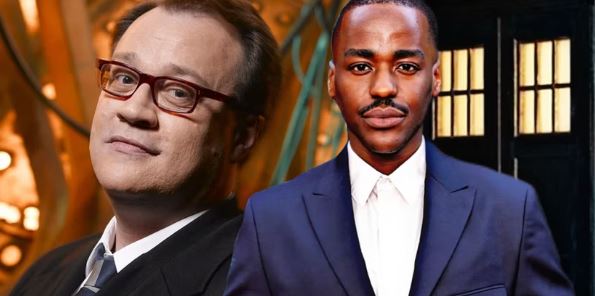Season 14 of Doctor Who saw ex-showrunner Russell T. Davies return to the writers’ room for the first time since 2010 – but his new season marks a massive departure from the ones that he previously wrote. Davies was responsible for the show’s revival in 2005, essentially bringing Doctor Who back from the dead after it was initially canceled in 1989. From there, the future of Doctor Who seemed very uncertain. But he carried the show through the 2000s, and when Russell T. Davies left Doctor Who in 2010, it seemed he wouldn’t be returning.
Since Davies’ exit, Doctor Who has been through two other showrunners: Stephen Moffat and Chris Chibnall. Both writers worked with RTD during his tenure, but they brought completely new styles to their eras and did certain things differently – to varying levels of success. After what most would agree was a low point for the show, RTD’s return seemed like it was going to be a return to the style he’d become famous for in the late 2000s. But while season 14 had some good episodes, it adopted a completely different formula to the stories he is best known for.
Doctor Who Season 14 Switched Grounded Storytelling For Fantasy

The Pantheon Of Gods Flipped The Show’s Style
One aspect that made RTD’s first era so exciting and popular was the grounded storytelling – it was an enormous change from the over-stylized, camp adventures of the 1980s, and it carried the show to a level of popularity it had never had before. There were real stakes, the stories got genuinely dark and frightening, and there were mature character arcs that unraveled over multiple seasons. This allowed audiences to really connect with the characters and immerse themselves in the stories.
The show began to drift more towards fantasy than science fiction […]
However, when RTD returned for his second era of Doctor Who, his style had completely changed. Season 14 was much more lighthearted, with musical numbers at the end of episodes, more jokes and slapstick comedy, and an overall brighter color scheme. The show began to drift more towards fantasy than science fiction, with stories that centered around Gods and deities instead of space wars and aliens. While his writing was still strong and the characters were likable, the stylistic switch-up was a big surprise.
Why Russell T Davies’ Two Doctor Who Eras Are So Different

The Showrunner Has Spoken On His Decision
Interestingly, RTD’s departure from the mature storytelling of his first era was apparently intentional. Speaking with Deadline, Davies revealed that he wanted to do something completely different with this season: “I think there’s so much television that [sticks too rigidly] to the three-act structure […] I think it’s time for a show just to break those rules.” While not every episode was an instant classic like some of his earlier adventures, his ambition and attempts to switch up the formula have to be commended.
Doctor Who Season 15 Needs A Better Blend Of RTD’s Two Eras

There’s A Sweet Spot For The Show To Find
Most likely, there’s a sweet spot between RTD’s two eras of Doctor Who that can effectively push the show into the future without detaching itself from its roots. It’s not that Doctor Who should stay away from fantasy – Moffat actually proved this was possible with the widely-acclaimed fifth season – but there need to be real stakes and darker moments too, which were lacking from season 14. There were some attempts at getting serious, such as Ruby’s reunion with her birth mother, or Rogue’s self-sacrifice, and this is exactly when the series was at its best.
Almost every Doctor Who era gets off to a shaky start – some of Matt Smith’s earliest episodes were poorly recieved, and he still ended up being one of the most beloved and recognizable actors to take on the role. Now that Davies has shaken up the style and tried something new, it’s time for him to tap back into his roots and bring that more grounded storytelling back to the show – and keeping the fantasy elements alongside this could prove to be an excellent decision.
